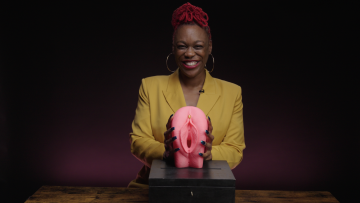
LADBIBLE GROUP UNVEILS THE UKS BIGGEST EVER STUDY INTO GEN Z
4 months agoOver 6,500 Gen Z and nearly 2000 Millennials reveal what really matters to Britain’s digital generation
Research reveals Britain’s young adults are more spiritual, self-aware and proud of their roots than ever before
Today, social entertainment business LADbible Group launches the LADbible Youth Census 2025 – the largest study of its kind, surveying over 6,500 Gen Zs and 1,800 Millennials across the UK – and offers the most comprehensive snapshot yet of what defines Britain’s digital-first generation.
The research reveals that Britain’s Gen Z are far from the ‘disengaged’ digital stereotype, they’re a generation defined by faith, friendship and local pride – finding meaning in spirituality, wellness and community as well as in their social feeds.
-
Six in ten Gen Z’s say social media has changed the way they speak
-
62% say they feel a strong connection to their hometowns and 63% say their accent is a key part of who they are
-
6 in 10 (59%) identify with religion or spirituality – often blending prayer, manifestation and astrology.
-
Nearly half (48%) feel pressured to agree with popular political views online
-
One-third practice self-care every day, with men more likely to do so than women
-
For Gen Z, being alone isn’t lonely – 70% see solitude as essential to their wellbeing
A Redefined Sense of Faith
While generations are often perceived to be becoming less religious, four in ten (43%) Gen Z say they identify as religious and if we add in spirituality, this proportion rises to six in ten (59%).
Instead of formal church attendance, Gen Zs are finding meaning through individual practices such as prayer (43%), manifestation (28%), meditation and mindfulness (27%) and astrology (14%) – often discovered through social platforms. Nearly half (44%) also say that religious figures and content creators (50%) on social media influence their social and political views.
Proud of Where They’re From
Despite being the first generation to grow up globally connected through social media, Gen Z’s sense of belonging is surprisingly local. 62% say they feel proud of their hometown, with half citing proximity to friends and family, as well as a sense of comfort and belonging, as key reasons. A quarter (26%) actually say their hometown shapes their identity more than their national background.
Language is part of that local pride: 63% consider their accent an important part of who they are, particularly in northern regions. In the North East, almost half (48%) consider their accent an important part of their identity, compared with just 9% in the South East.
The full rundown of the places that feel their accent makes their area stand out the most is…
North East – 45%, Northern Ireland 36%, North West 29%, Scotland 29%, Yorkshire 28%, West Midlands 27%, London 22%, South West 20%, East of England 18%, Wales 16%, East Midlands 15%, South East 9%
Social Media and Online Behaviour
Platforms such as TikTok (43%), YouTube (41%) and Instagram are now the leading sources of news and information for young people. Two-thirds have made friends online (66%), and more than 60% say their tastes in music, food and even slang comes from social media trends, with terms like ‘bed-rotting’ coined as a common phrase for self care.
However, the digital space isn’t without pressure. Nearly half (48%) feel compelled to agree with popular political or social opinions online, and 18% admit they avoid political discussions altogether.
Comment sections have also become a key part of the experience. 15% say they always read comments before finishing a post, and while most prefer to watch rather than participate, 91% admit to “lurking” and 29% say they actively join discussions.
Wellbeing as a Way of Life
For Gen Z, self-care isn’t a luxury – it’s a lifestyle. Three in four respondents practise some form of self-care weekly, and one in three do so daily. Top activities include spending time alone (69%), spending time with loved ones (61%), exercise (60%), reading (46%), mindfulness or meditation (25%), and journaling (15%).
The research found men tend to favour structured wellbeing practices such as exercise or meditation, while women are more likely to engage in creative or reflective activities, including journaling and reading.
One 22-year-old participant summed up the tension many young people feel online: “Politics causes arguments, so I don’t bother anymore. It’s easier to just scroll past than get dragged into it.” Another, aged 23, reflected on the generation’s focus on balance over burnout: “For me, self-care isn’t about spa days – it’s saying no when I’m burnt out, going for a walk and actually resting. It’s small things that keep me sane.”
Work, Money and the Future
Gen Z are savvy investors (72 %), AI adopters (60 % use AI daily at work) and increasingly confident about managing money – though (59%) men still express higher financial confidence than (45%) women.
Men are also more likely to invest their money (78% vs 66% of women), while women prioritise saving and long-term security. Despite this, Gen Z women are less likely than men to rely on parental support, with 39% describing themselves as fully financially independent vs 33% of men.
Overall, Gen Z remains optimistic about the future. Despite the high cost of entry point, buying a home and achieving financial stability remain their top goals, and their access to digital financial education has made them confident investors.
A 25-year-old respondent described the mix of optimism and pressure many feel about their future: “People think we don’t care about work, but I still want stability and to do well – it’s just harder now to get there. I’m trying to save, invest a bit and plan ahead, but everything costs more. I still want the same things my parents did – a home, a job I love, a happy family – it just looks different now.”
Mike Walsh, Director of Marketing at LADbible Group said: “Gen Z are the first generation to have fully grown up alongside social media, with their friendships and communities shaped through digital platforms. As the UK’s biggest study, this research allows us to move beyond outdated assumptions and reveal the reality of how this generation thinks, behaves and connects, and how they’re reshaping culture as we know it and redefining a number of traditional areas of life such as religion, wellness and personal ambition”.
Heather Batten, Head of Insights at LADbible Group said: “Gen Z are growing up in a world that’s more connected (and more complex) than any generation before them. What stands out in this research is their ability to blend tradition with modernity: faith with feeds, ambition with wellbeing, individuality with community. They’re deeply digital yet locally rooted, and while their values are evolving, the desire for meaning, stability and belonging remains as strong as ever. This is the most comprehensive insight we’ve had into this generation, and we’re proud to share it – shining a light on who Gen Z really are and what drives them.”
*END*
NOTES TO EDITORS
About the research
The research was conducted by LADbible Group through LADnation, its youth research panel, gathering responses from 6,528 UK Gen Z aged 16 to 28.
More News





